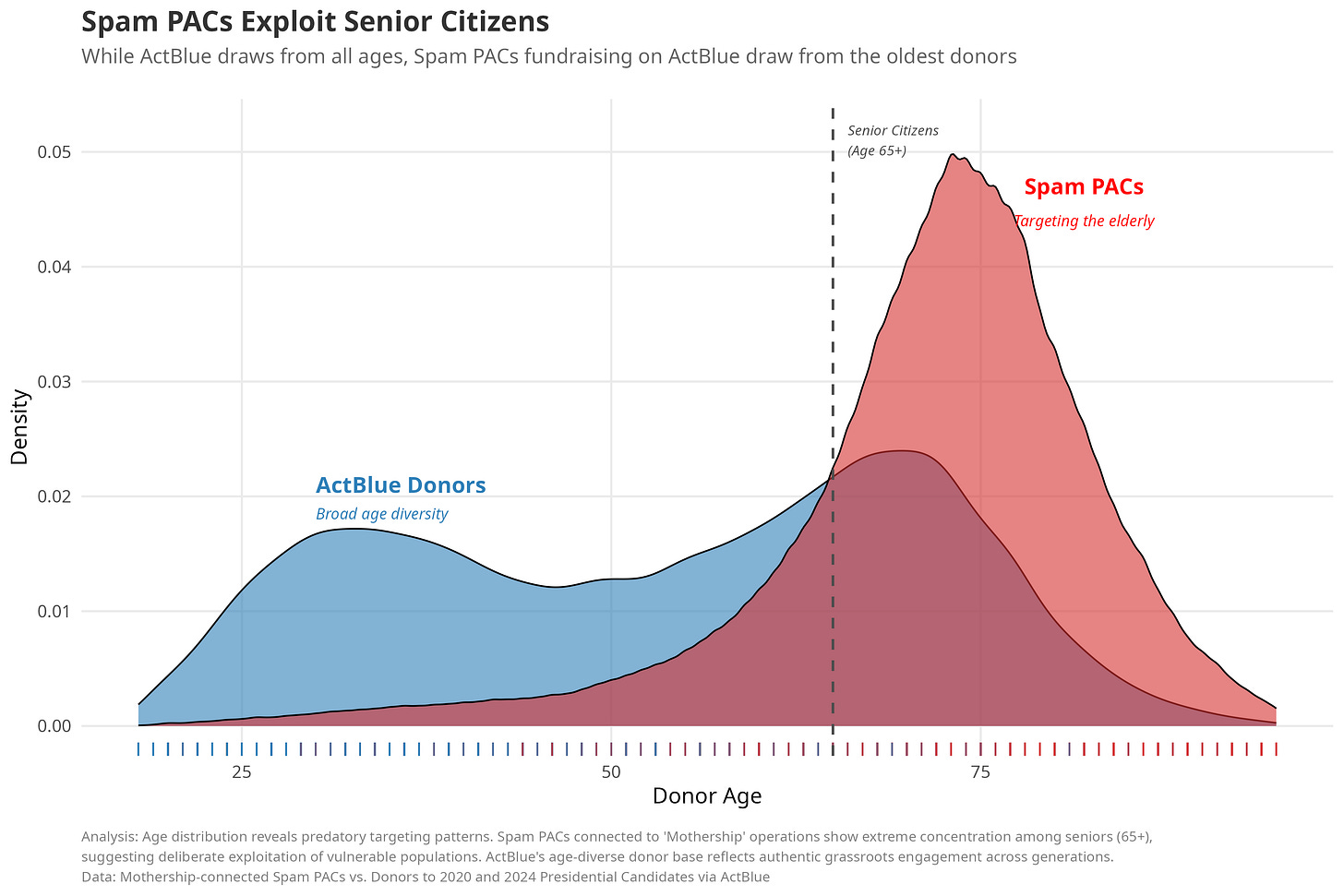It’s OK If You Don’t Read This
Pro-democracy activists and veteran organizers alike are struggling with information overload and outrage fatigue. But there are ways to cope!
Last week, I had dinner with several activist friends who make up the heart of our local Indivisible group. We had gotten together to process the “One Million Rising” training program that Indivisible National, along with a host of partners, has presented to tens of thousands of activists across the country over the last month. (More on that in a moment.) We were going around the circle, checking in with each other, when one person blurted out something along the lines of, “I just can’t keep up. There are too many things to read and too many things to do. I just want someone to decide and put me to work.”
Her comment stopped us all in our tracks. Several people agreed. There’s too much information to keep track of about too many outrages, and with every minute more messages arrive from groups begging for help, for money, and most critically, for attention.
Those of us who have had children know that when you take a baby into a crowded, noisy environment, very often he or she will go to sleep. Trying to process an overstimulating environment is exhausting to little brains. The same is true for adults, though instead of going to sleep we close our eyes metaphorically.
As psychologist Barry Schwartz argued in his seminal 2004 book, The Paradox of Choice: Why More is Less, being offered too many options often leads to paralysis. He illustrated this with a story about going to buy a pair of jeans. What was once a simple task can now take hours, because manufacturers now offer a wide array of choices: slim fit, easy fit, relaxed fit, baggy, extra baggy, etc. He wrote, “Before these options were available, a buyer like myself had to settle for an imperfect fit, but at least purchasing jeans was a five-minute affair. Now it was a complex decision in which I was forced to invest time, energy, and no small amount of self-doubt, anxiety and dread.” He added, “As the number of choices grows further, the negatives escalate until we become overloaded. At this point, choice no longer liberates, but debilitates.”
This is, of course, a big part of the Trump-Miller-Vought regime’s strategy. They are flooding the zone, and our defenses can’t keep up.
But this is also something we’re doing to ourselves. Those of us trying to protect democracy and the rule of law are also flooding the zone. And we desperately need to figure out how to focus, both on the individual and collective level. As I’ve said many times, I’m a silver-linings kind of guy, so here are some solutions or glimmers of solutions.
You Can’t Boil the Ocean, Or Drink It!
First, it’s really OK to not try to keep up with everything. It’s also important to recognize that none of us can do everything. But we all can do something. So the same way you might periodically look at your daily food intake and make adjustments to try to stick to a healthy diet, it’s a good idea to look at your information diet and trim it back to a more manageable level.
Second, our side doesn’t have to keep sending out so many unsolicited emails and texts, especially those that twist the truth and prey on the naivety of many givers. It’s a choice to do this, not a necessity. This is why I and many others keep harping on the “spam-and-scam” and “churn-and-burn” tactics that so many Democratic politicians and groups use to extract dollars from grassroots donors.
Stanford political scientist Adam Bonica has a new must-read post up today on this topic that shows how much the Mothership Strategies nexus and top clients like Reps. Nancy Pelosi, Hakeem Jeffries and Susan DelBene (the head of the DCCC) as well as the national party committees disproportionately draw their donations from senior citizens compared to many other politicians and organizations. Some may argue this is because of historic loyalties on the part of older givers who have been donating to organizations like the DNC for decades, but I think Bonica is right that the overall pattern is explained by the vulnerability of seniors, particularly people 75 and up, to all kinds of scams.

Fake Nigerian prince meet Chuck Schumer! But the good news here is ActBlue’s decision to start clamping down on these scammers, starting today. A lot of us are hoping to see a shift in practices emerge.
But What About the Defiance?
At the beginning of July, weeks after roughly five million Americans turned out to say “No Kings” and days after the Senate passed Trump’s Big Ugly Bill, Indivisible and its partners announced One Million Rising, a three-part online training program aimed at fostering “strategic non-cooperation to fight authoritarianism.” This represents a real pivot in Indivisible’s strategy for blocking Trump. Instead of focusing on pressuring Members of Congress, the idea is to disrupt, delay and potentially prevent the regime from acting by undermining its key pillars of support in the business, labor, faith, and education sectors, the civil service and the military/police.
Making this shift involves a recognition that the Republican-controlled Congress has largely decided to stop acting like an independent branch of government[1], and that the Trump regime also doesn’t care to follow norms, rules, laws or the courts when it doesn’t suit them. A different kind of civic pressure than showing up at town halls and calling your elected representatives needs to be built and exerted to confront this authoritarian power grab.
The key idea of One Million Rising, as I understand it, is to get hundreds of thousands of people in formation around a common understanding of 1) what we face, 2) how authoritarian regimes rely on pillars of support in order to rule, and 3) the need to build local groups capable of trusting each other and acting together. More than 140,000 people attended the first Zoom training session on July 16. Roughly 40,000 came to the second one on July 30. And more than 20,000 joined on August 13 for the last session. (All three were also streamed on YouTube and you can watch them here.)
From my perspective, there was a significant shift between the second and third sessions. Session two, which was mostly led by Daniel Hunter and Maria Stephan, two leading experts on non-cooperation and anti-authoritarian organizing, offered a great primer both on how wannabe dictators break electoral democracies and start to consolidate power and on how movements can creatively organize to obstruct such changes. But when the session closed, they left the thousands of people watching with a very broad charge. Essentially, it was: “figure out which pillars you personally can influence” and “talk to your neighbors and friends in small resistance gatherings and figure out who else you can plant ‘seeds of noncooperation’ with.”
In my humble opinion, this was too big an ask. Especially when so many grassroots activists are drowning trying to drink from a firehose of bad news and possible responses. But boiling everything down to a few priorities is hard, whether you’re a seasoned organizer or someone new to the fight. Indeed, here’s how Ash-Lee Woodard Henderson, the movement strategist who anchored all three of the One Million Rising zooms (along with many other movement meetings), described the challenge of meeting the thousands of people who joined the third session August 13 as she kicked the meeting off:
”Some of us are arriving here because we wanted to know what's next after our massive No Kings mobilization, because we wanted to learn how we can take meaningful actions, where we are, to slow down and ultimately stop the consolidation of evil forces that are stripping away the rights of our people, destroying even the semblance of democracy in this country, and concentrating power in the hands of the few at the expense of the many. We know that there are so many attempts by this administration and the minions that support them to overwhelm and shock us, to harm so many and destroy so much that it's hard to know what to do, when to do it, how and where as well.
It's nearly impossible to show up to every single one of the urgent calls, to keep track of all the calls to action, to know all the things that are happening locally, across our states, regionally, across the country, and even globally. Maybe you're here tonight because you're scared and you're looking to not be alone. Well, we're glad you're here. Maybe you're here because you're skeptical about our ability to win in these conditions, and you're looking for an infusion of some grounded truth and direction to change your mind about it. Maybe you just don't want to be alone with whatever you're feeling tonight and are here to connect with a broad front of people that are wanting to be on the right side of history in this time. Maybe you're here because you're disgusted and concerned about what the wannabe king has done to our relatives in Washington, DC, and are looking for your marching orders.
Friends, there are so many examples of non-compliance that we've talked about over the last several calls, some that require the ability to take great risk, and many more that are completely accessible to those of us with the lowest risk tolerances. And that too, the many, many options can, in its way, feel overwhelming. Many of us are waiting for some charismatic movement leader to give us the perfect intervention that we can make that stops this nightmare in its tracks, especially if we only have to do it one time. Others of us are expecting such complex movements across this country to perfectly align across our differences, to share consolidated tactical interventions, which, frankly, take time and relationship to get to. As one in the number trying to make all this happen, it can often feel like we're building a car while driving it and being attacked from the inside and the outside.”
Despite these challenges, the organizers of One Million Rising decided to highlight three priorities. One, to hold local rallies August 16 in solidarity with Texas Democratic legislators trying to hold off a mid-decade congressional redistricting power grab, was essentially moot by the time the protests happened—though it was still important to not let the moment go unnoticed. The other two calls to action are more open-ended, tie nicely into the “pillars of support” framework, and offer activist groups many points of entry where local organizing can make a difference. Not surprisingly, both are about fighting the growing attack on immigrants.
The first campaign is called “Signs of Solidarity.” The idea is to visit local businesses to ask them to post signs declaring their support for immigrants and opposition to ICE, and to also create a well-marked private area for employees only that ICE can’t enter without a signed judicial warrant.
The second campaign was already underway, an effort to make Avelo Airlines, a low-cost regional commercial airline, pay a cost for deciding to sign a deportation charter contract with ICE. Ground Avelo has many entry points: individuals can sign a pledge to boycott deportation airlines, groups located near any of the airports that Avelo flies out of can hold protests and visibility brigades, state and local governments that subsidize the company can be pressed to end those deals, universities that have partnerships with the company (which include Yale, the University of New Haven, Colorado State and Quinnipiac) can be pushed to cancel those contracts, and anyone can call the company’s customer service line to pester its leadership.
Like any good corporate campaign, Ground Avelo has a clear, winnable goal: to get the company to cancel its contract with ICE. But there are many incremental victories that can be registered along the way—indeed, just two weeks ago, the city of New Haven decided to prohibit city employees from using public funds to travel on or promote the airline. A local New Haven arts group, Puerto Ricans United, has also severed its ties with the airline. (New Haven’s Tweed Airport is Avelo’s east coast hub.)
Of course, these aren’t the only two things you can do, but as soon as I or anyone else offers you a bigger list (boycott Target[2], boycott Amazon, boycott Dollar General, boycott T-Mobile, takedown Tesla, support labor on Labor Day with the MayDay Strong movement, etc.) the paralysis of analysis creeps in.
The other thing that will help the pro-democracy Defiance to Trump’s authoritarian power-grab solidity and get stronger is a common name and symbol. I know that leaders of various organizations in this fight have been wary of trying to impose anything from above, but time’s-a-wasting!
—Related: Go deeper on the “pillars of support” framework with the Horizons Project.
The Defiance Gets Creative (Continued)
—“A network of five thousand faith communities is now disseminating a blueprint for clergy and lay leaders who want to push back against what Trump and the agents of his newly emboldened ICE are doing to immigrants across the country,” Adrian Carrasquillo reports for The Bulwark’s Huddled Masses section. It includes a “rapid-response action plan for churches and faith communities to protect people during ICE raids.”
—In a similar vein, I’ve heard rumors that some churches, synagogues and mosques are rejecting demands by the Department of Homeland Security that in order to get grants to bolster their security, they have to affirm that they are not advancing any DEI initiatives or expressing support for Palestinian rights. Bend the Arc Jewish Action is holding a training September 4 at 7pm in partnership with the Jewish Community Safety Campaign on “Creating community safety under authoritarianism” that should be very apropos.
—Related: This piece by Dreama Caldwell and Janaé Bates about organizing lessons from North Carolina and Minnesota offers some very clear examples of how building power from the ground up can lead to wins with statewide significance.
As Goes Gotham?
—This City & State interview with Ana Maria Archila and Jasmine Gripper, the co-chairs of the New York Working Families Party, on how they constructively corralled the field of progressive candidates running in the city’s Democratic mayoral primary, is worth a close reading.
—NYC tech leader Anil Dash explains on his blog why he thinks Zohran Mamdani “is the leader NYC needs for innovation and leadership.”
—And in Vital City, Bradley Tusk and Jamie Rubin, two VCs with strong ties to NYC, offer Mamdani some friendly unsolicited advice about how they hope he succeeds as mayor.
New Episode of This Old Democracy
—The latest episode of my new podcast is a conversation with Astra Taylor, a writer and organizer who has been on the cutting edge of everything since the days of Occupy Wall Street. We dig into her book Democracy Doesn't Exist But We'll Miss it When Its Gone (which she published in 2019 but which is even more relevant now). And I also got to ask her how we can fight "The Rise of End-Times Fascism," the gloomy title of an essay she and Naomi Klein recently wrote in the Guardian. And Astra has some great answers! You can find this episode on Apple Podcasts here or Spotify here.
End Times
Sometimes a hero is a sandwich! Bonus link if you want merch!
[1] Actually, the picture is not nearly that bleak. For example, in mid-July, ten Republican Senators wrote a letter to Trump objecting to the freezing of $6 billion in after-school funding that had already been appropriated for the 2025-6 school year. Days later, the funds were released.
[2] Sales at Target fell more than expected earlier this year as a boycott led by Black churches over its scaling back of DEI initiatives took a bite, and today the company announced that its CEO would be stepping down.




This is a wonderful summary of our predicament, Micah...very similar to what happened to many of us during Trump 1.0 in terms of the cycle of outrage, increasing activity, exhaustion, scraping along, building momentum again, that we experienced in 2017-2020. But maybe magnified 10x. I have heard variations many times, of what that person said in frustration at the dinner. "Just tell me what to do - I don't want to think about it too much." Absolutely understand that feeling - but let's not let that lead to makework responses to our problems. Our problems are bigger this time - our responses have to be bigger.
Interesting! I was on the first One Million Rising zoom call and on a national DSA call, and thought they were, roughly speaking, sort of at different ends of the spectrum. But thanks to your update on the third One Million Rising call I realize they’re closer than I thought, as one of the most compelling parts of the DSA call was a report from a tiny chapter in Northern California that drove Avela out of town!